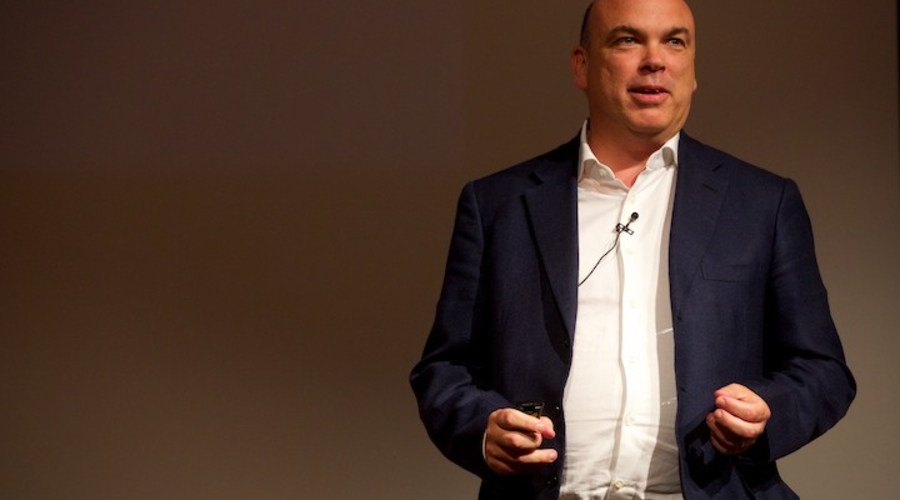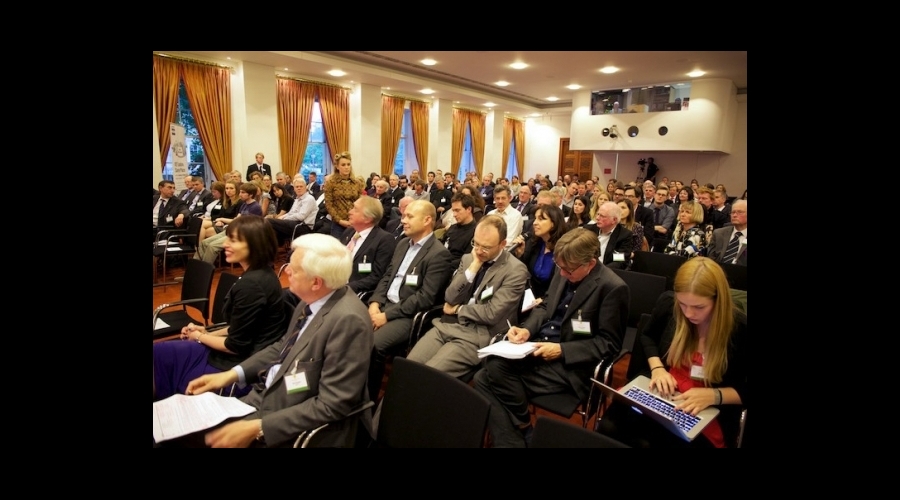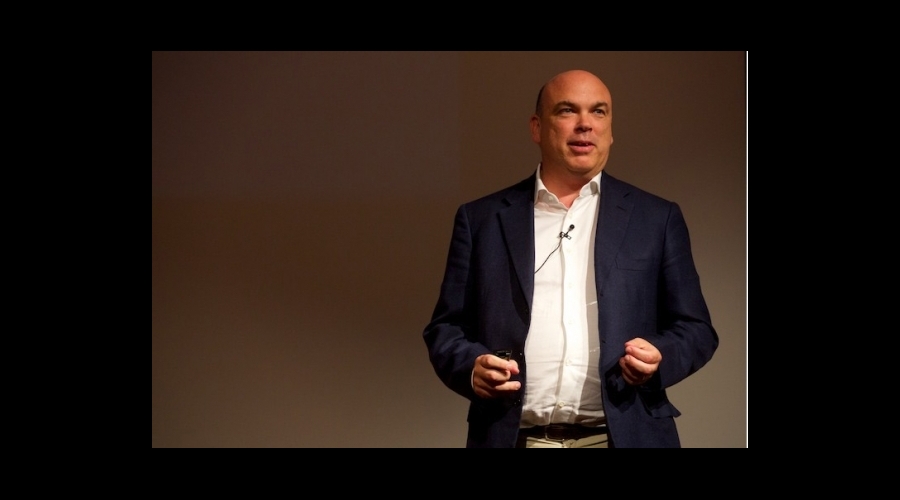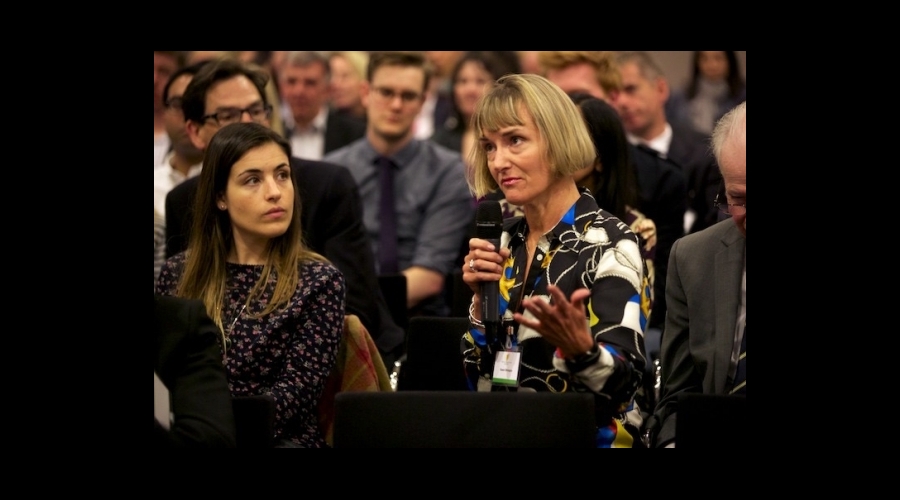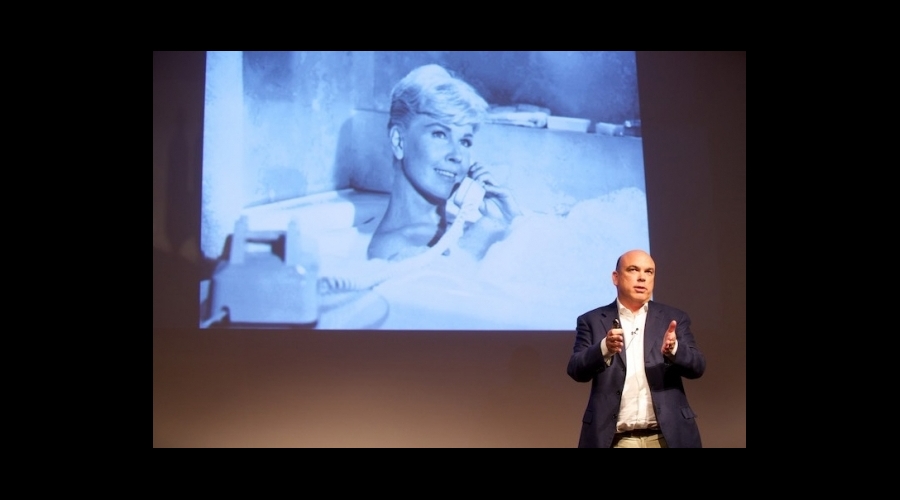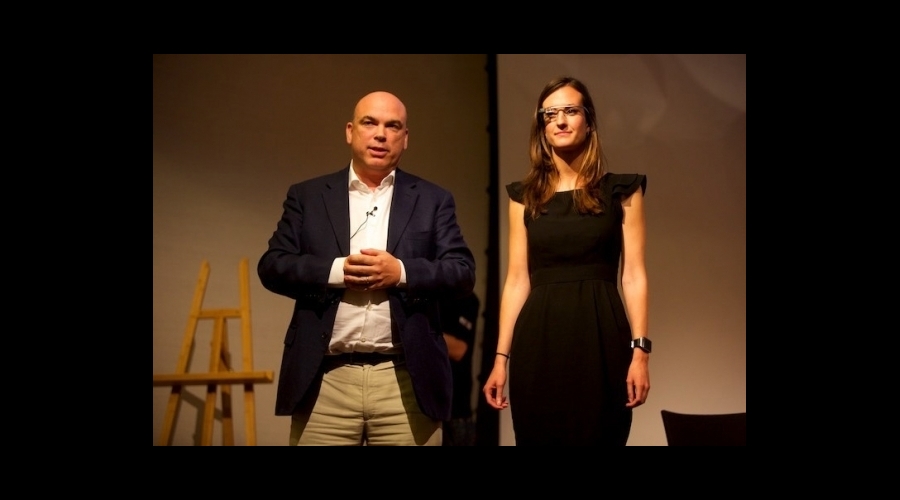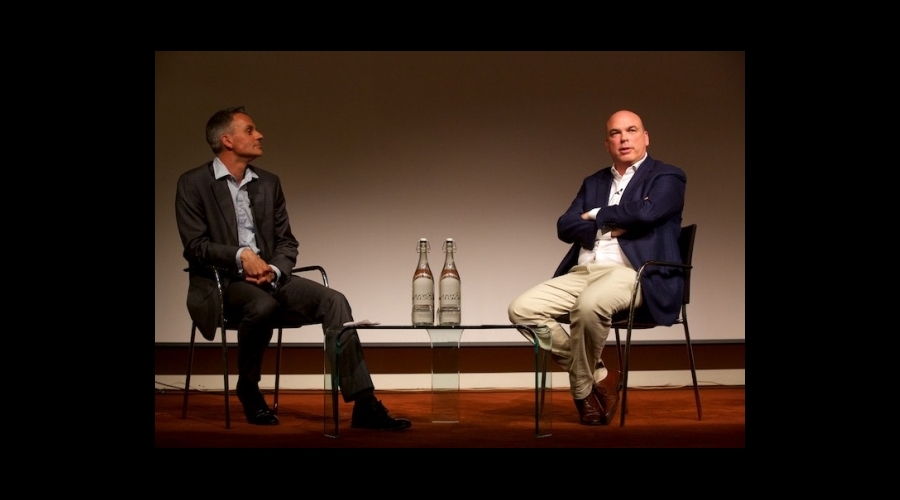Technology entrepreneur Dr Michael Lynch speaks on the difficulty of predicting the future at the RTS/IET Joint Public Lecture.
New creative opportunities for content creators that allow people to interact with 3D images by using machine recognition technology are poised to transform television as we know it.
That was one of the key points to emerge from the RTS/IET Joint Public Lecture given by technology entrepreneur Dr Michael Lynch at the Royal Society, entitled “Prediction is very difficult, particularly about the future”.
Demonstrating Google Glass, a Samsung wearable watch and a state-of-the-art iPhone, Lynch showed the packed audience what can be done given recent advances in processing power and machine recognition technology.
Attendees gasped as they saw a tiny digital dinosaur play on a real table in real time and a family portrait suddenly come to life – all of it in 3D.
Like any master showman, Lynch had lowered expectations prior to this high-tech demo.
“I warn you that what I am going to show you is the equivalent of looking at a TV set in the 1940s,” he claimed. “It’s going to be fuzzy, clunky – but one thing we can be absolutely sure about is that it is going to get a lot better quickly.
“I am going to show you the equivalent of the Test Card on some of these new technologies. It is for you [TV practitioners] to start thinking about the creativity that you can put behind that.”
He added: “The reality is that while I don’t think television will die in the same way that radio hasn’t died, I do think there are new creative forms coming along. They will allow creativity to be expressed in very interesting ways.”
In his wide-ranging and thought-provoking address Lynch outlined how human beings and institutions are failing to keep up with the exponential pace of technological change.
Quoting veteran Harvard biologist EO Wilson, Lynch highlighted his belief that “we have the emotions of the Palaeolithic, the institutions of the medieval and the technology of the gods”.
He added: “The emotions of the Palaeolithic mean we actually still have love, hate, fear, greed, jealousy and anxiety, just as you would find in human art from Shakespeare to EastEnders.”
Lynch continued: “What we are seeing in the world is the effect of these tectonic plates moving at different speeds and they start to rub up against one another where they can’t adapt to the changes.”
One example would be the 2008 financial crisis, which showed that the speed of technological change was creating instability that institutions were struggling to keep up with, let alone provide a solution to.
“The important thing about technological change is what it has done to people,” said Lynch.
He added: “If you have a talented software programmer sitting in a Suffolk village they can be a 100 times as productive as the median software programmer… The ability to get information flow to and from the human brain has been going up exponentially.”
The upside is that a creative software producer or the inventor of a hot new TV format can now monetise their IP globally.
Lynch referenced physicist Neil Bohr (whose quote provided the lecture’s title) and writer Michael Frayn, whose play, Copenhagen, speculated about what might have happened when Bohr famously met fellow scientist Werner Heisenberg in September 1941 to discuss Nazi plans for an atomic bomb.
Without Bohr’s pioneering work in quantum mechanics, TV and mobile phones would still be figments of our imagination.
As if that wasn’t enough to keep the crowd on their toes, Lynch also brought in genetics and personalised medicine as a way of treating cancer patients.
The evening was chaired by BBC Worldwide CEO Tim Davie. A full report of the event will appear in the June edition of Television.
Dr Mike Lynch OBE FREng FRS, technology entrepreneur and founder of Invoke Capital, gave the RTS IET Joint Public Lecture at London’s Royal Society on 13 May.
Report by Steve Clarke
Photos by Paul Hampartsoumian

